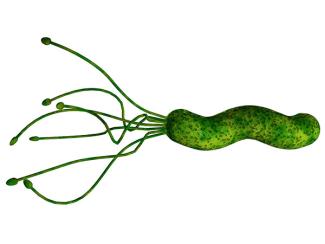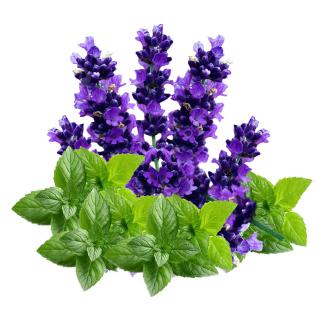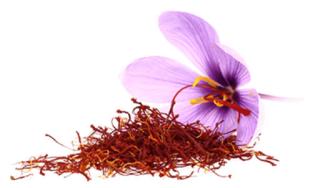
Cloves, scientifically known as Syzygium aromaticum, are dried flower buds of the clove tree native to Indonesia. Apart from their culinary uses, they possess several medicinal properties, including the ability to enhance the effects of antibiotics, thereby allowing the use of smaller amounts of antibiotics. Here's a detailed description of how cloves achieve this:
- Antimicrobial Properties: Cloves contain compounds such as eugenol, carvacrol, and caryophyllene, which exhibit strong antimicrobial properties. These compounds can help to destroy or inhibit the growth of bacteria, fungi, and other microorganisms, thereby enhancing the effectiveness of antibiotics.
- Anti-inflammatory Action: Inflammation is often associated with bacterial infections. Cloves possess anti-inflammatory properties that can help reduce inflammation, thereby enhancing the effectiveness of antibiotics in treating infections.
- Increased Cell Membrane Permeability: Studies suggest that certain compounds in cloves can increase the permeability of bacterial cell membranes. This allows antibiotics to penetrate bacterial cells more easily and exert their action, even at lower concentrations.
- Synergistic Effects: Combining antibiotics with cloves can create synergistic effects, meaning they work better together than each component individually. This synergy enhances the overall effectiveness of antibiotic treatment, allowing smaller amounts of antibiotics to be used without sacrificing efficacy.
- Prevention of Antibiotic Resistance: One of the significant challenges in modern medicine is the development of antibiotic resistance. Using cloves alongside antibiotics can help reduce this risk by increasing the effectiveness of antibiotics, thereby reducing the need for high doses that may contribute to the development of resistance.
To harness the benefits of cloves in enhancing the effects of antibiotics and allowing the use of smaller amounts, various forms of consumption can be considered:
- Consuming Cloves Directly: Chewing on whole cloves or consuming powdered cloves directly can provide the active compounds beneficial for enhancing antibiotic effects.
- Cloves in Tea: Brewing cloves in hot water to make tea is a popular method of consumption. This allows the active compounds to be extracted into the water, which can then be consumed.
- Incorporating Cloves in Cooking: Adding cloves to soups, stews, sauces, or marinades during cooking can infuse dishes with their medicinal properties. This method ensures a gradual release of active compounds during digestion.
- Cloves in Oil Form: Clove oil is another available form of this spice. It can be diluted and consumed, added to beverages, or used for flavoring foods.
It's important to note that while cloves can enhance the effects of antibiotics, they should not be used as a substitute for prescribed medication. Consulting with a healthcare professional before incorporating cloves into your regimen is advisable, especially if you're taking other medications or have underlying health conditions. Additionally, individual tolerance and allergies should be considered before consumption.
The recommended way to consume cloves
When it comes to consuming cloves to augment the effects of antibiotics and enable the use of smaller antibiotic doses, several methods can be employed. Here's a detailed description of recommended consumption:
- Ground or Crushed Cloves: Before consumption, it's advisable to grind or crush cloves. This releases and activates the active compounds, such as eugenol, which are key to the antimicrobial properties of cloves. Grinding or crushing also facilitates easier mixing with other ingredients or liquids.
- Preparing Clove Tea: One of the most common methods of consuming cloves is by making clove tea. To prepare clove tea, you can use approximately one teaspoon of ground cloves per cup of boiling water. Let the tea steep for about 5-10 minutes, then strain it. You can drink the tea several times a day, especially while taking antibiotics.
- Adding to Food: Cloves can be added to food as well. You can grind or crush them and incorporate them into dishes such as soups, stews, sauces, or marinades. This method allows cloves to gradually release their active compounds during digestion, potentially enhancing antibiotic effects.
- Using Clove Oil: Clove oil is another convenient form of consumption. It can be added to water or tea, or used for flavoring foods. When using clove oil, it's essential to follow usage instructions and dilute it as needed, as it can be highly concentrated and potent.
- Consultation with Healthcare Provider: Before incorporating cloves into your regimen to enhance antibiotic effects, it's crucial to consult with a healthcare provider. They can provide guidance on the appropriate dosage and method of use, as well as check for any potential interactions with other medications or health conditions.
- Consideration of Allergies and Tolerance: It's important to consider individual allergies and tolerance levels before consuming cloves. If you experience any adverse reactions, such as allergic reactions or gastrointestinal discomfort, discontinue use and consult with a healthcare professional.
By following these recommendations, you can effectively consume cloves to complement antibiotic treatment and potentially reduce the required antibiotic dosage. However, it's essential to remember that cloves should not replace prescribed antibiotics but rather serve as a supportive measure to enhance their effectiveness. Additionally, consistent communication with healthcare providers is vital to ensure safe and effective usage.






